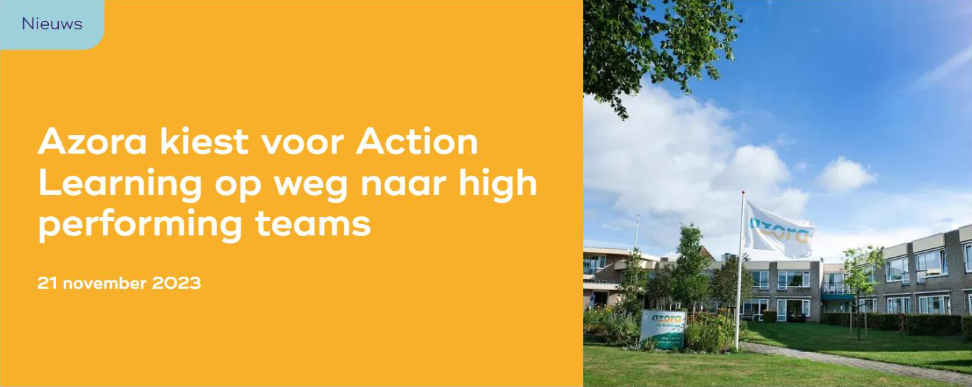

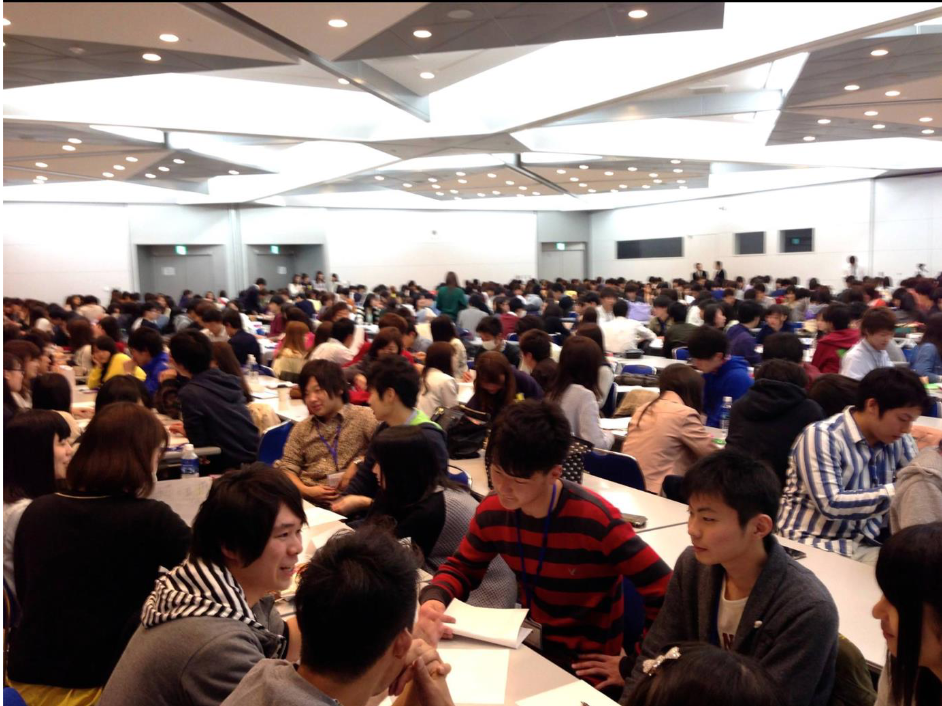
INTRODUCING ACTION LEARNING AT RIKKYO UNIVERSITY: SCALING FROM SCRATCH TO 90 CONCURRENT SESSIONS FOR 500 STUDENTS
I am very pleased to receive this award. In fact, I had the honor of receiving the Best Award in the academic sector on behalf of Rikkyo University in 2014, making this the second time I have received such recognition. In this paper, I would like to report on the introduction of action learning over the past 13 years at two universities, detailing the process, objectives, and outcomes. Read More
STOP REMINDING ABOUT GROUND RULE #1
Every Action Learning session starts with a reminder of the ground rule. If the team is relatively new to Action Learning, the coach will explain that there are 2 ground rules in this kind of session, with the first being that “Statements can only be … etc.” Read More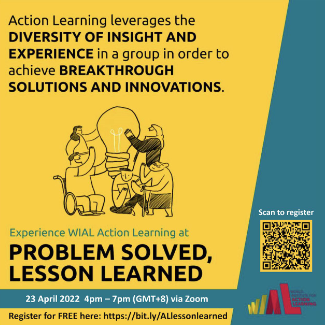
MY FIRST EXPERIENCE WITH A PWD PARTICIPANT IN AN AL SESSION
I had the privilege to be part of the hosting team of the WIAL Philippines Movement event last 23 April 2022. Our team promoted the event to different people through various social media platforms and personal group threads. Through my college “Ateneo Psychology 1995” Viber group, I was able to have three (3) college classmates interested to sign up and attend the Movement. Read More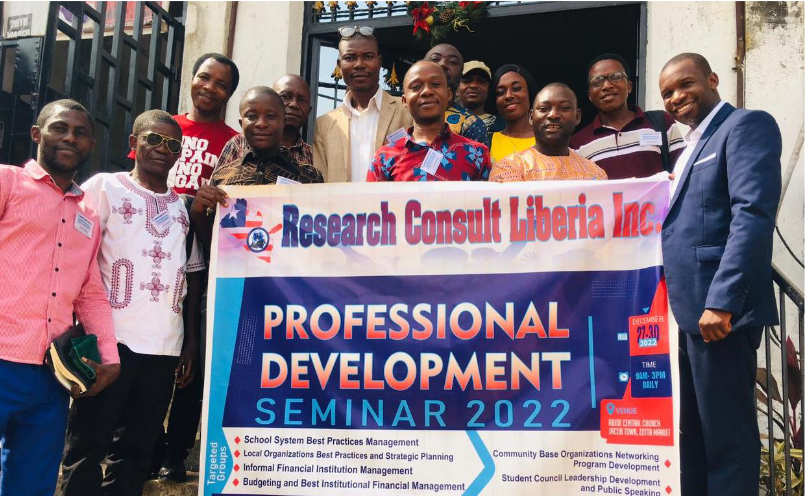
ACTION LEARNING:THE GAME-CHANGER FOR AFRICA LEADERSHIP LEGACY
Did you know that 66% of employees say they would likely leave their job if they didn’t feel appreciated? This statistic underscores the importance of effective leadership and inclusion in the workplace. Read More
SEEING WHAT’S INVINCIBLE PART 2
Who knows how life will unfold? The future is always a mystery; however, that’s not a reason not to practice being available to that mystery. In fact, because I have done a lot of practice I now realize it has helped me relax and engage in this natural unfolding Read More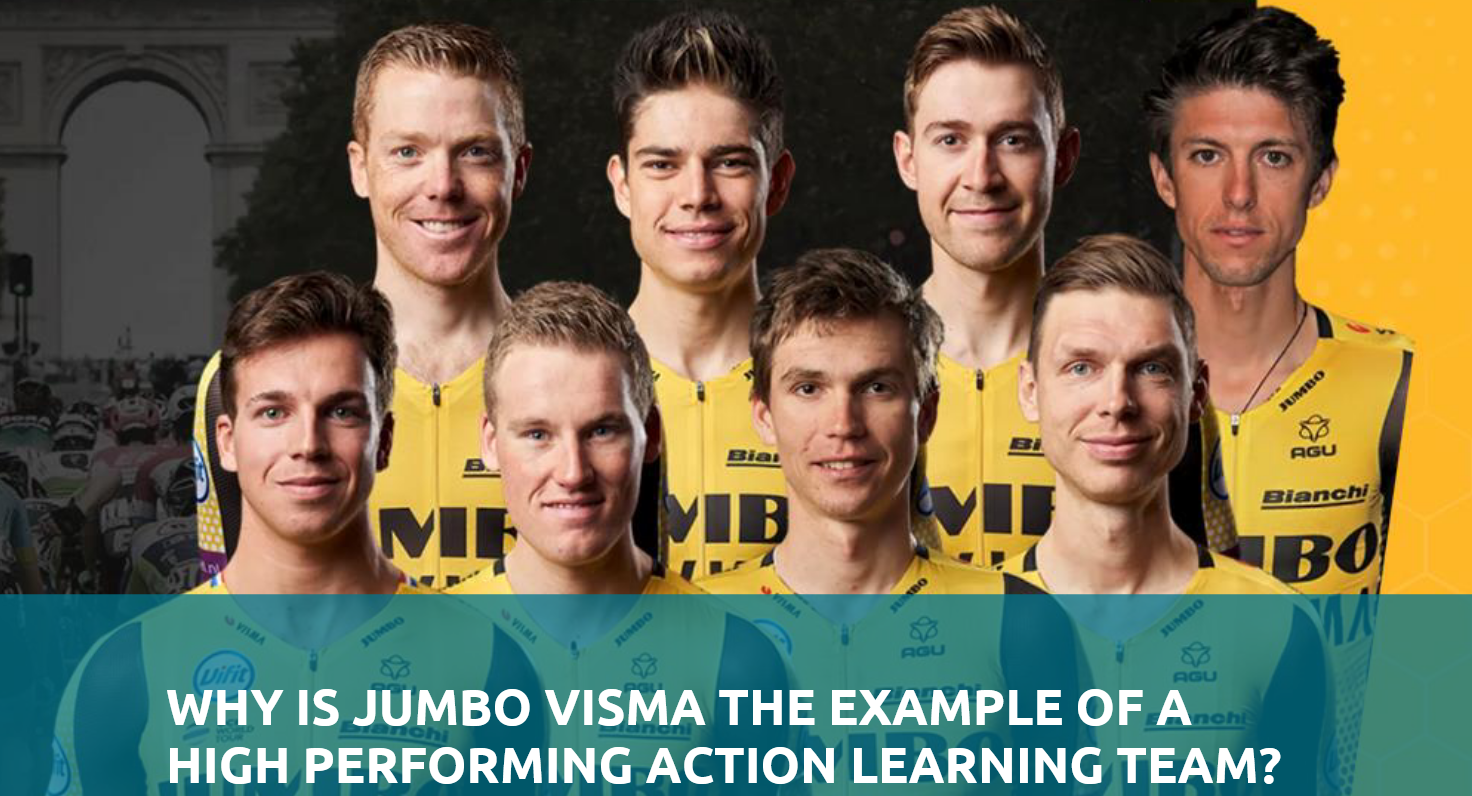 Learning from what goes well is the fourth element of seven, which I describe,
following the success of Jumbo Visma’s cycling team.
My previous blog was about the importance of learning from what went wrong. So
now the opposite. The question that immediately comes to mind is: How (or when)
does a team learn more from loss or more from gain and why?
Read More
Learning from what goes well is the fourth element of seven, which I describe,
following the success of Jumbo Visma’s cycling team.
My previous blog was about the importance of learning from what went wrong. So
now the opposite. The question that immediately comes to mind is: How (or when)
does a team learn more from loss or more from gain and why?
Read More
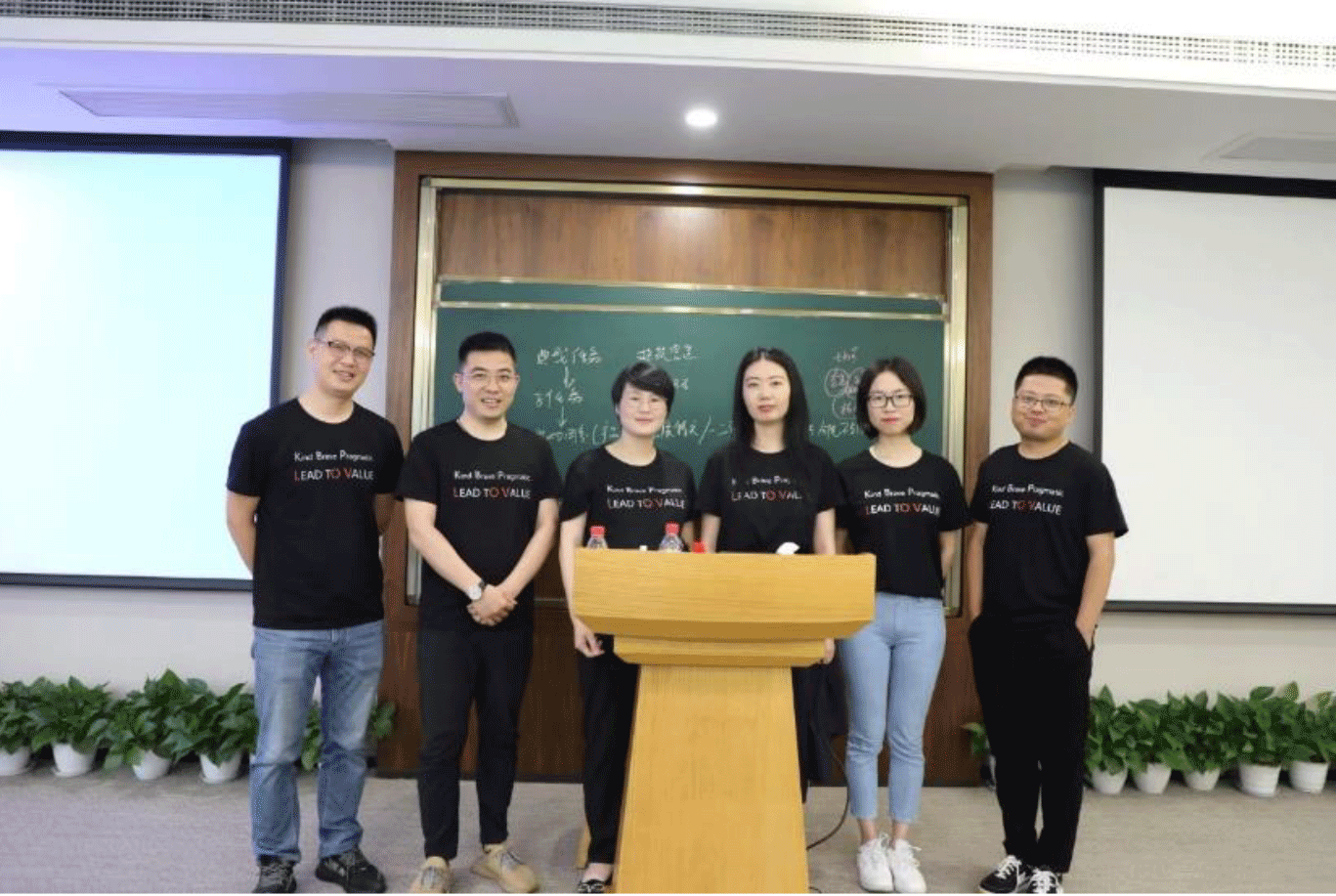 It begins with a simple conversation between Action Learning coach Hou Shaohua and
his friend Zhao Shuping about Action Learning. After a serious discussion in April
2021 ,they realized that Action Learning may help Generation Z and young people born
after 1995 out of the confusion of life and work.
Read More
It begins with a simple conversation between Action Learning coach Hou Shaohua and
his friend Zhao Shuping about Action Learning. After a serious discussion in April
2021 ,they realized that Action Learning may help Generation Z and young people born
after 1995 out of the confusion of life and work.
Read More
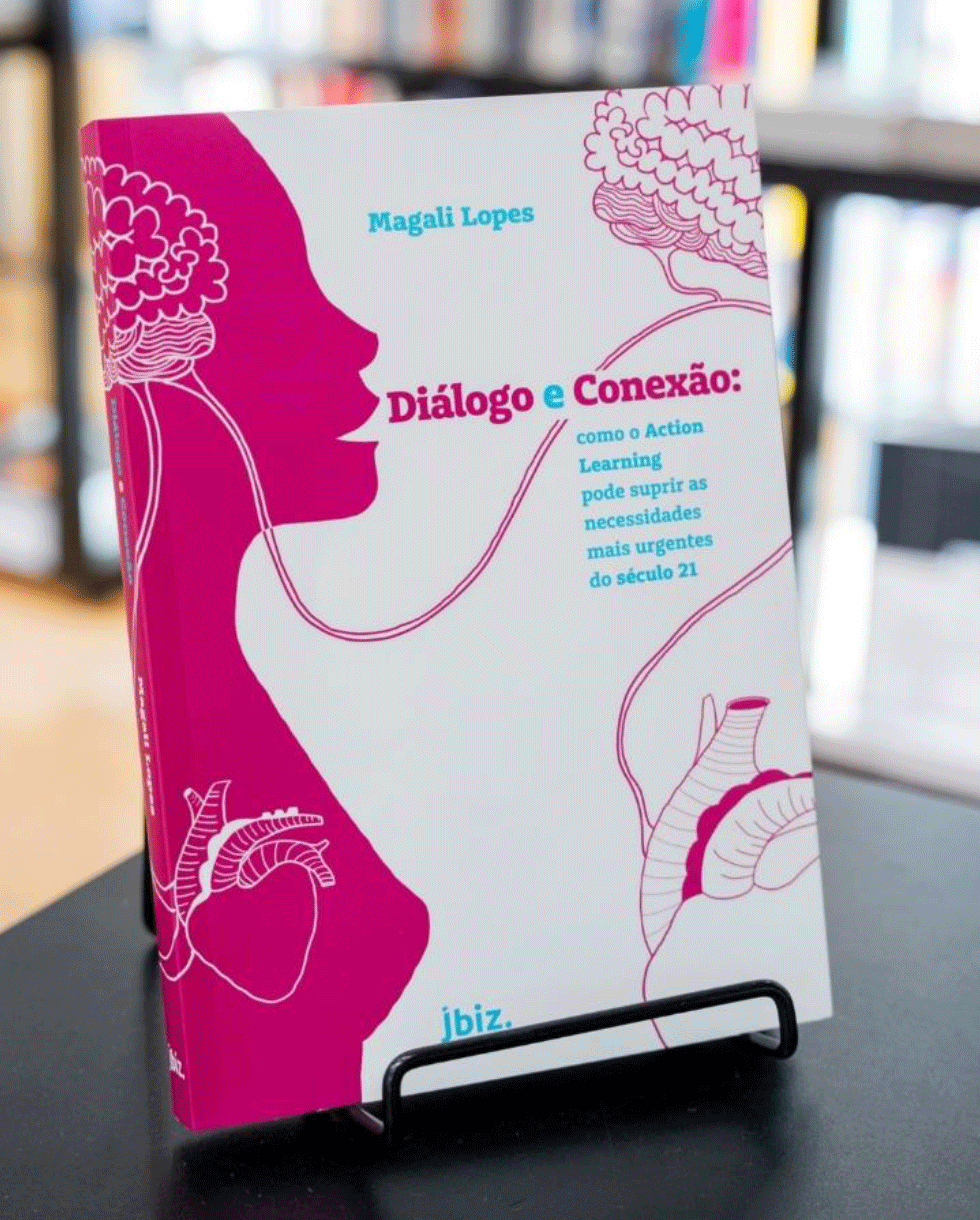 The book points out how human capacities for dialogue and connection are
powerful tools to generate more empathy and results in communities,
organizations and even in the country.
Read More
The book points out how human capacities for dialogue and connection are
powerful tools to generate more empathy and results in communities,
organizations and even in the country.
Read More
 What is culture?
I recently reread Edgar Schein’s seminal book “Organizational Culture and
Leadership”1. Schein identifies culture as “a pattern of shared basic assumptions
learned by a group as it solved its problems of external adaptation and internal
integration, which has worked well enough to be considered valid and, therefore, to
be taught to new members as the correct way to perceive, think and feel in relation
to those problems”.
Read More
What is culture?
I recently reread Edgar Schein’s seminal book “Organizational Culture and
Leadership”1. Schein identifies culture as “a pattern of shared basic assumptions
learned by a group as it solved its problems of external adaptation and internal
integration, which has worked well enough to be considered valid and, therefore, to
be taught to new members as the correct way to perceive, think and feel in relation
to those problems”.
Read More
 THE PANDEMIC PURSUIT: A POST-GRADUATE CALC’S TIMELY TALE
As someone who loves to learn and to take action, you can imagine the immediate
curiosity I had when I first heard about Action Learning. My colleagues who have had
the chance to participate in Action Learning sessions spoke about it with much
enthusiasm, but when asked about the details, all of them said the same thing: “You
have to experience it to understand it.” Eventually, I did join one session. Little did I
know that a single session would cause a huge ripple effect in my life.
It was early 2021 and I was a struggling graduate student stuck without a thesis to
pursue to finally complete my master’s degree. I wanted to conduct exploratory
research that would not only contribute to the field of Organizational Psychology, but
also benefit organizational development practitioners in the Philippines. I took note
of possible topics to focus on and read through tons of literature to identify gaps that
my study could address. I kept hitting deadends. It seemed like all my topics of
interest were already charted territory.
Read More
THE PANDEMIC PURSUIT: A POST-GRADUATE CALC’S TIMELY TALE
As someone who loves to learn and to take action, you can imagine the immediate
curiosity I had when I first heard about Action Learning. My colleagues who have had
the chance to participate in Action Learning sessions spoke about it with much
enthusiasm, but when asked about the details, all of them said the same thing: “You
have to experience it to understand it.” Eventually, I did join one session. Little did I
know that a single session would cause a huge ripple effect in my life.
It was early 2021 and I was a struggling graduate student stuck without a thesis to
pursue to finally complete my master’s degree. I wanted to conduct exploratory
research that would not only contribute to the field of Organizational Psychology, but
also benefit organizational development practitioners in the Philippines. I took note
of possible topics to focus on and read through tons of literature to identify gaps that
my study could address. I kept hitting deadends. It seemed like all my topics of
interest were already charted territory.
Read More
 Professional Action Learning Coach Christoph Maria Ravesloot from WIAL
Netherlands specializes in working for teams with trauma blocking the team
development. The first step is to make the safety in the team negotiable and get it to the
attention and care of the team. He wrote a blog on that theme from two action learning
perspectives: who reports unsafety in the team and who experiences it? Those two
perspectives define the intervening questions an action learning coach can ask the team.
Read More
Professional Action Learning Coach Christoph Maria Ravesloot from WIAL
Netherlands specializes in working for teams with trauma blocking the team
development. The first step is to make the safety in the team negotiable and get it to the
attention and care of the team. He wrote a blog on that theme from two action learning
perspectives: who reports unsafety in the team and who experiences it? Those two
perspectives define the intervening questions an action learning coach can ask the team.
Read More
 Over the summer I took a month off for vacation. I managed to distance myself from
my work quite well. But ignoring sports successes is impossible for me.
In 2021, it was TeamNL at the Olympic Games, but in 2022 it was the performance of
the Jumbo Visma team during the Tour de France that caught my eye. Jumbo Visma
is a Dutch cycling team with cyclists from several countries. After several years of
being close to success, where things often went wrong at the last minute, they were
very successful that summer of 2022.
I went to watch, listen and read. What an Action Learning Team that is! A nice touch
is that the environment has already determined that the team consists of eight
riders, the ideal number for a team, at least that is step 1.
Read More
Over the summer I took a month off for vacation. I managed to distance myself from
my work quite well. But ignoring sports successes is impossible for me.
In 2021, it was TeamNL at the Olympic Games, but in 2022 it was the performance of
the Jumbo Visma team during the Tour de France that caught my eye. Jumbo Visma
is a Dutch cycling team with cyclists from several countries. After several years of
being close to success, where things often went wrong at the last minute, they were
very successful that summer of 2022.
I went to watch, listen and read. What an Action Learning Team that is! A nice touch
is that the environment has already determined that the team consists of eight
riders, the ideal number for a team, at least that is step 1.
Read More
 When these invitations show up to write for the WIAL Newsletter my first sense is
that I really have nothing to tell anyone. So, why not use this opportunity for some
hard thinking to organize my ideas on how some of my practices may be showing
up to help me to see beneath the surface or as I will refer to it “see” the invisible in
different situations
Read More
When these invitations show up to write for the WIAL Newsletter my first sense is
that I really have nothing to tell anyone. So, why not use this opportunity for some
hard thinking to organize my ideas on how some of my practices may be showing
up to help me to see beneath the surface or as I will refer to it “see” the invisible in
different situations
Read More
 Given the current and growing interest in team coaching among a wide
range of organizations, it will be increasingly important to highlight action
learning as a systemic team coaching approach, in addition to its value as
a group coaching and problem-solving methodology. While there are
many flavors of Action Learning, the single-problem approach developed
by Prof. Marquardt can be regarded as an effective approach to systemic
team coaching. It shares the enabling conditions that support effective
team coaching as well as Peter Hawkins’ five disciplines that are essential
to the success of a sustainable and value-creating team.
Read More
Given the current and growing interest in team coaching among a wide
range of organizations, it will be increasingly important to highlight action
learning as a systemic team coaching approach, in addition to its value as
a group coaching and problem-solving methodology. While there are
many flavors of Action Learning, the single-problem approach developed
by Prof. Marquardt can be regarded as an effective approach to systemic
team coaching. It shares the enabling conditions that support effective
team coaching as well as Peter Hawkins’ five disciplines that are essential
to the success of a sustainable and value-creating team.
Read More
